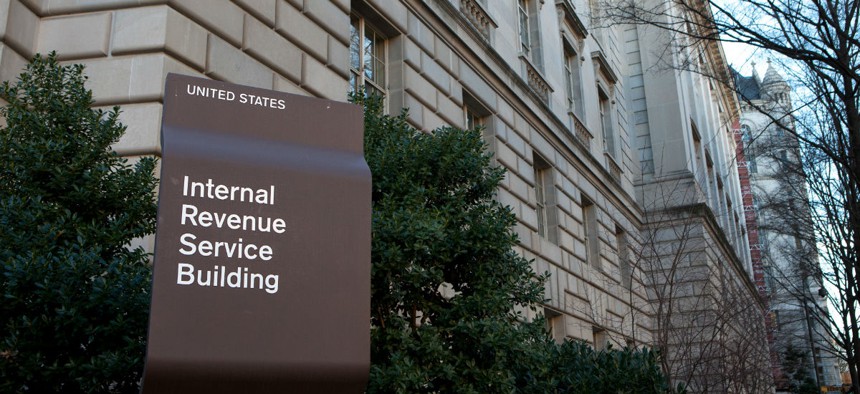
Mark Van Scyoc / Shutterstock.com
Judge Tells IRS to Rethink Privacy Limits on Document Disclosure
Cause of Action calls mixed ruling a “victory for transparency advocates.”
In the latest twist in the legal battle over alleged White House interference in the Internal Revenue Service, a federal district judge on Friday ordered the tax agency to conduct a new search of documents sought under the Freedom of Information Act by the conservative-leaning nonprofit group Cause of Action.
During the past year Cause of Action has taken the IRS and the Treasury inspector general to court challenging claims by both that they could not release all documents related to a possible probe into whether Obama administration officials improperly sought individuals’ tax return information that is deemed private under Section 6103 of the Internal Revenue Code.
In a mixed ruling that sided in part with the nonprofit and partly with the IRS, Judge Amy Berman Jackson of the U.S. District Court for the District of Columbia wrote that “it is not at all clear that all Executive Branch requests for ‘return information’ can be characterized as ‘return information’ that is factual in nature and shielded from disclosure by the taxpayer confidentiality statute.”
But in a victory for the IRS, the judge, in ruling on six separate requests from the plaintiff, found that the agency had “established that it conducted an adequate search for records responsive to items one and two of plaintiff’s FOIA request, but not for records responsive to items three and four. The court further finds that defendant has shown that ‘tax checks’ and related records” are exempt from disclosure under FOIA, but that it has not shown that any and all records responsive to items three, four, five, and six would necessarily be exempt.
Congress amended Section 6103 in 1976 “in the wake of Watergate and White House efforts to harass those on its ‘enemies list,’ in order to restrict government officers and employees from revealing ‘any return’ or ‘return information,’ and its ‘core purpose’ is to ‘protect taxpayer privacy,’ ” the judge wrote. “So, this court questions whether section 6103 should or would shield records that indicate that confidential taxpayer information was misused, or that government officials made an improper attempt to access that information.”
Hence the judge sent the agency back for a new documents search. The Cause of Action suit against the IG continues separately.
“As we have said all along, this administration cannot misinterpret the law in order to potentially hide evidence of wrongdoing,” said Cause of Action Executive Director Dan Epstein in a statement hailing the ruling as a win for the transparency community. “No administration is above the law, and we are pleased that the court has sided with us on this important point.”
The ruling is a “mixed victory for Cause of Action,” Patrice McDermott, executive director of the OpenTheGovernment.org coalition, told Government Executive. “The judge upheld IRS’ responses in four of the six requests. Her ruling on items 5 and 6 is significant in that it calls out overreach by IRS and also the adequacy of IRS’ search in four of the six items. For openness advocates, the ruling on the adequacy of the search is more significant, as this is a problem in many agencies.”
(Image via Mark Van Scyoc / Shutterstock.com)







